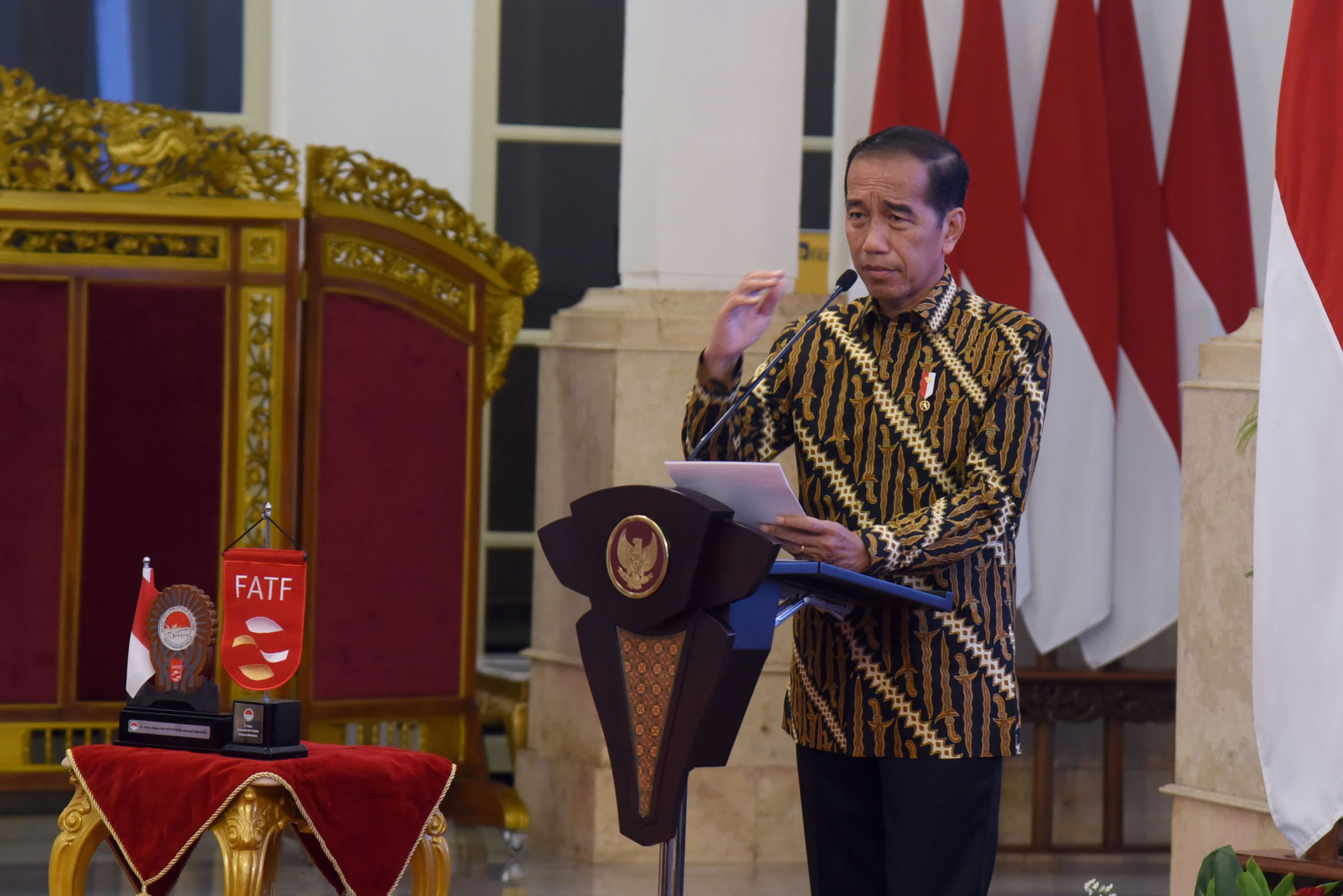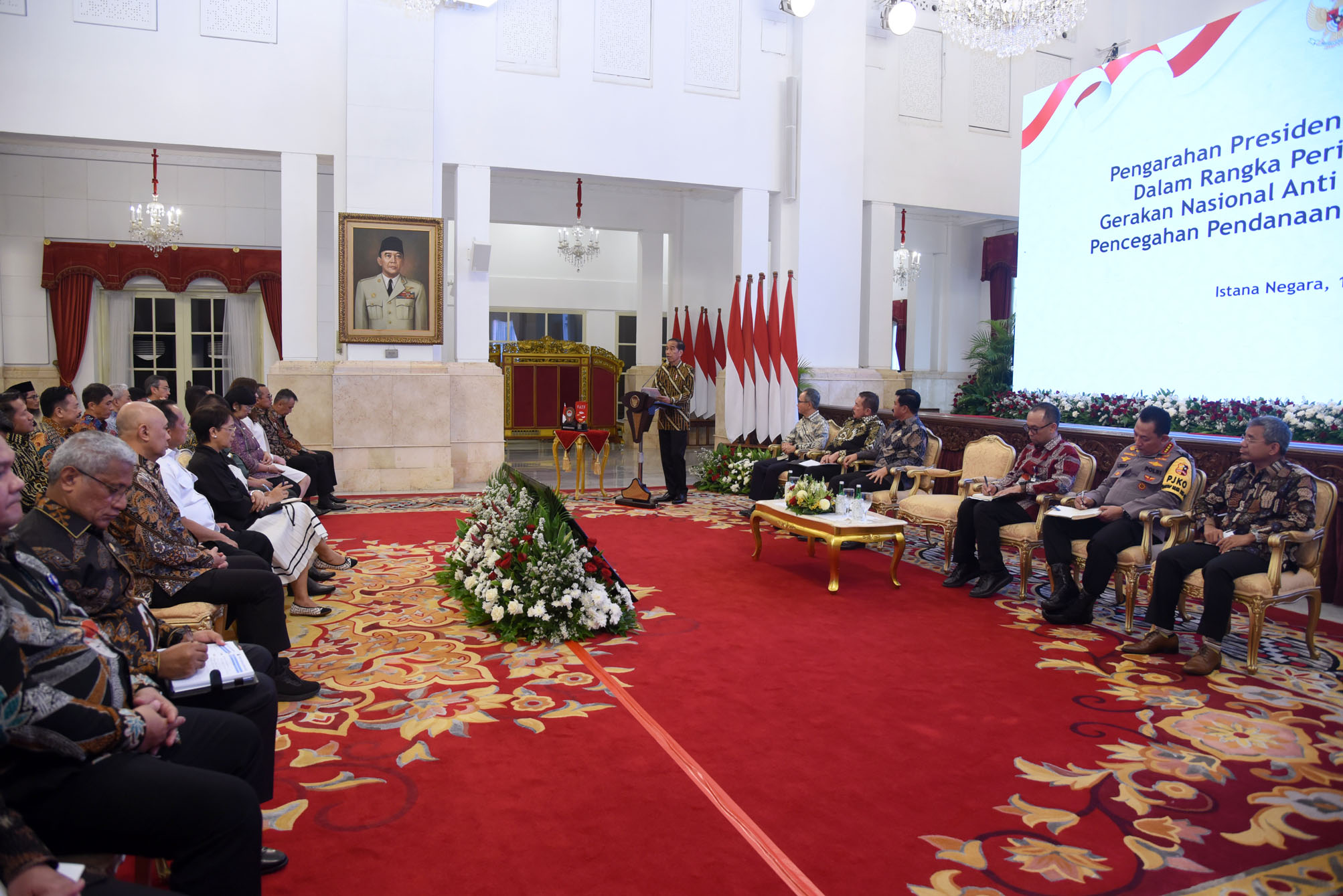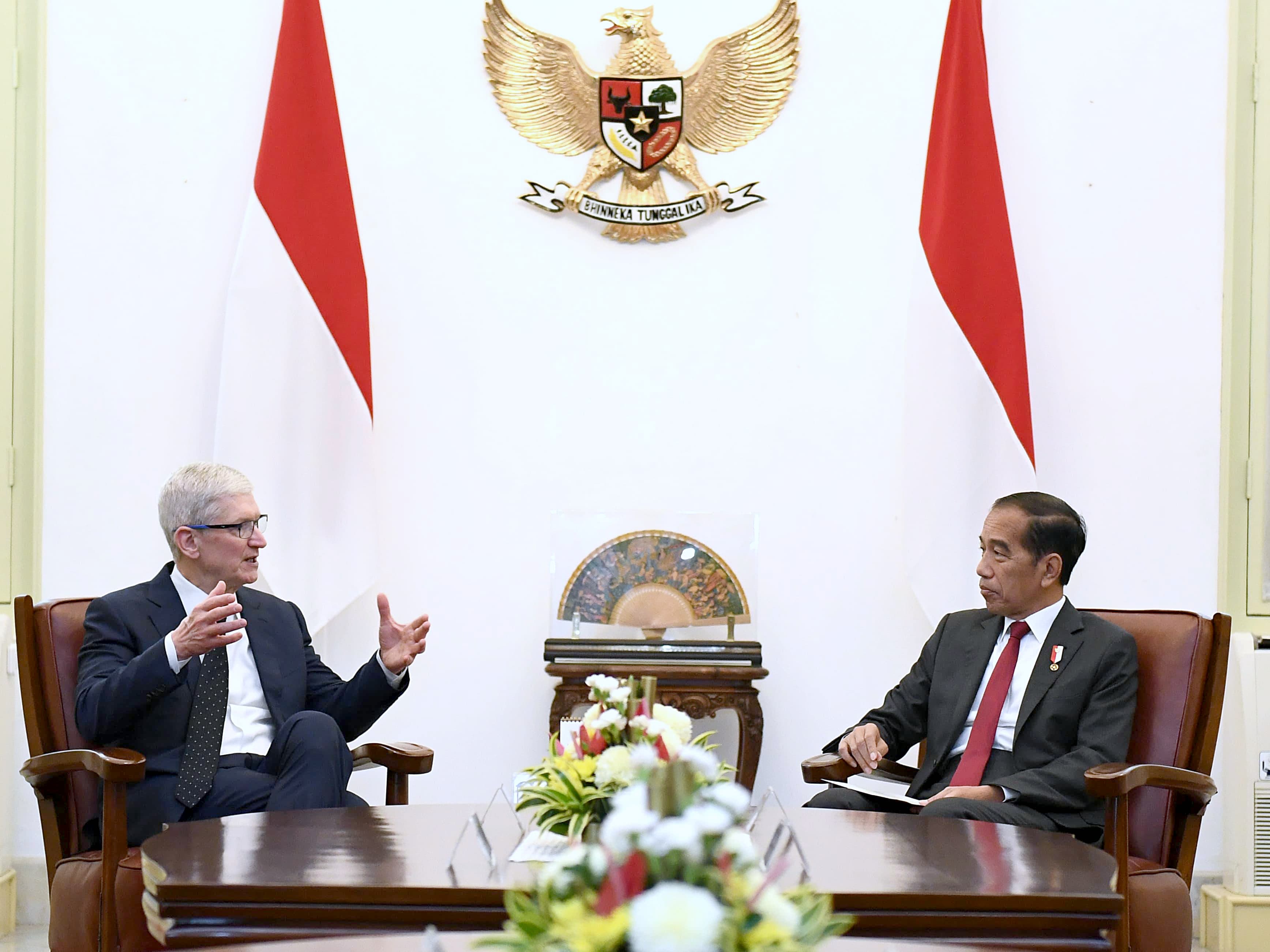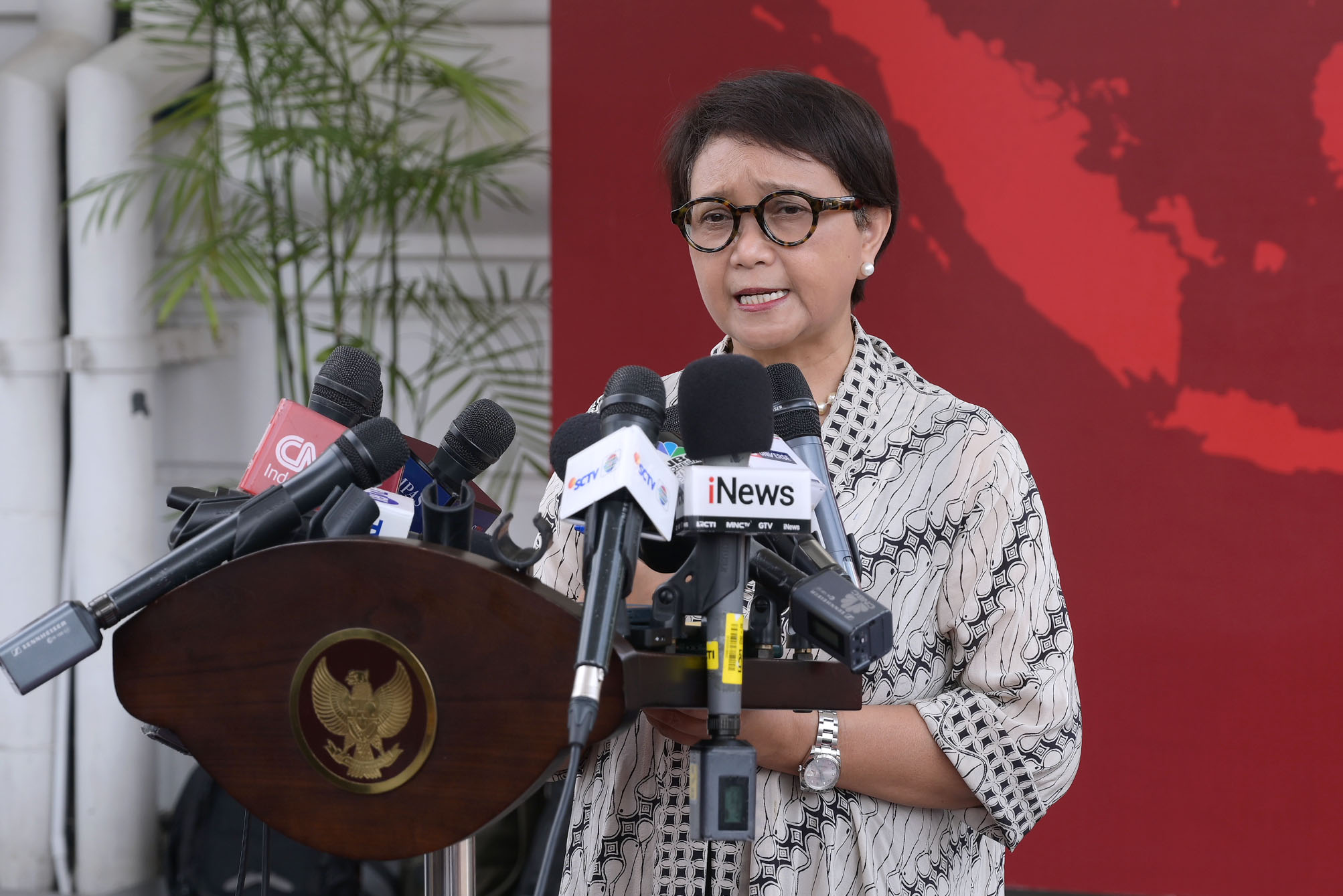Govt Eyes 6.1% Economic Growth: Finance Minister
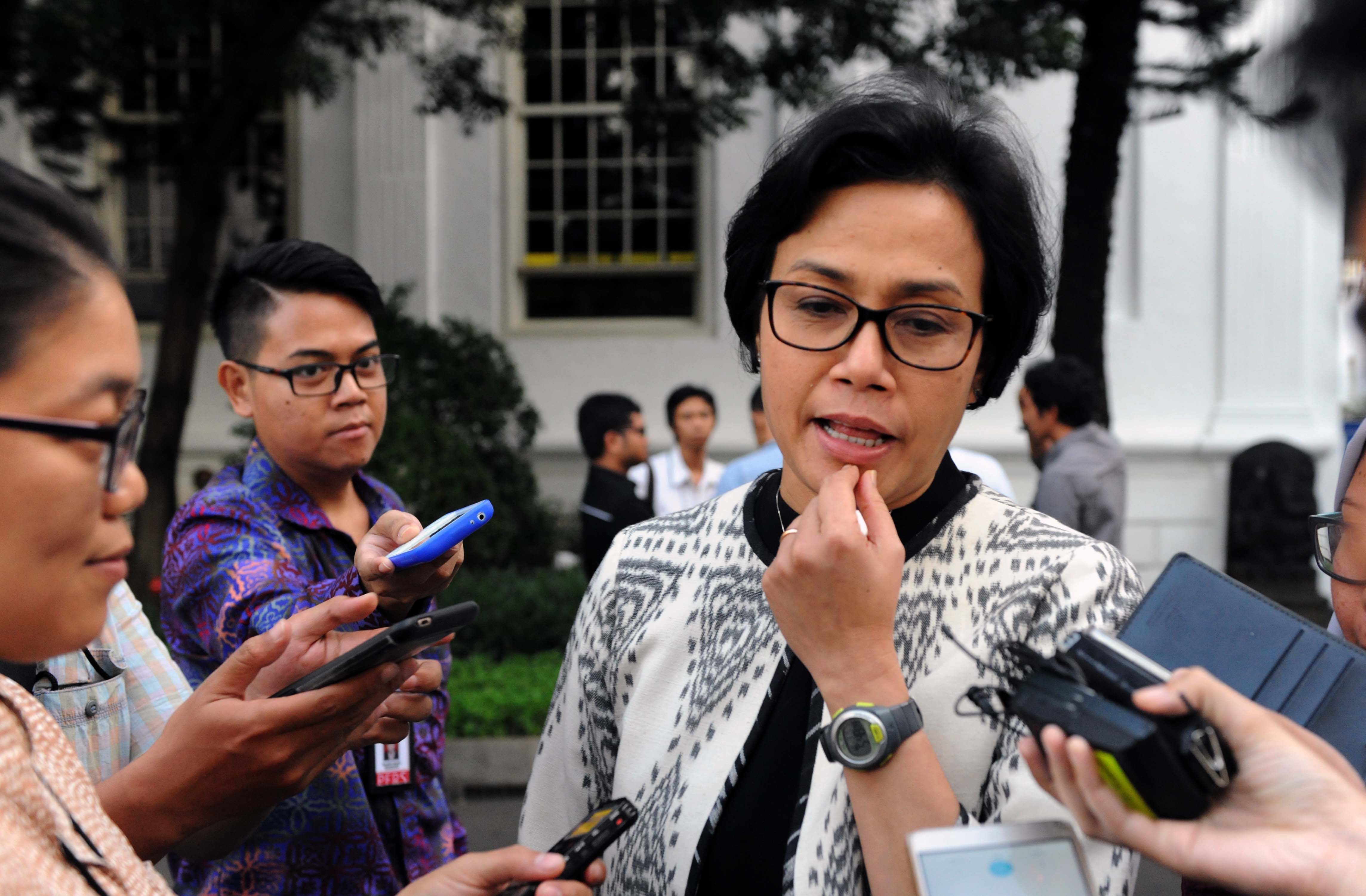
Finance Minister Sri Mulyani answers reporters questions after attending a Plenary Cabinet Meeting at the State Palace in Jakarta on Wednesday (15/3). (Photo by: Public Relations Division/Jay)
Finance Minister Sri Mulyani Indrawati said that to meet the target of economic growth within the range of 5.4%-6.1% in 2018, the Government must also see the development until the first semester this year and the growth of investment.
Mr. President puts an extra emphasis that any scenario needs more investment. So, investment growth has to be above 8% from the current 6%, the Minister told reporters after attending a plenary cabinet meeting at the State Palace, Jakarta, on Wednesday (15/3).
According to the Minister, to reach 8% economic growth, it would not be possible to rely on the State Budget only. In fact, she added, it is also important to involve State-Owned Enterprises (SOEs) and the private sector, such as contribution from the banking credit and the capital market.
As for the economic growth this year, the Minister said that there is a possibility that it can be higher than the assumption of 5.1%. She added that the growth might also increase into 5.2% or even 5.3%.
As for inflation, the Minister said that President Jokowi emphasizes that inflation should be maintained so prices of food commodity can remain stable. However, we have a real pressure from inflation. We also have to monitor our currency exchange rate because our inflation is relatively higher. It will probably face pressures, she said.
In the meantime, Sri Mulyani also pointed out that the burden of macro assumption would continue to be monitored to see how it affects the State Budget.
She added that when the oil price increase, or the exchange rate rises, the Government will get higher revenues from natural resources. However, at the same time, if there is no change in the amount of subsidy provided, the amount of subsidy will increase, especially for LPG, Fuel Oil, and solar.
Those increases are related. Now its about how we manage the State Budget while at the same time how to keep the moment of the Governments program and the economic movement wont be disrupted, she said.
Thats what we presented during the meeting, the Minister concluded. (FID/JAY/ES) (EP/YM/Naster)





